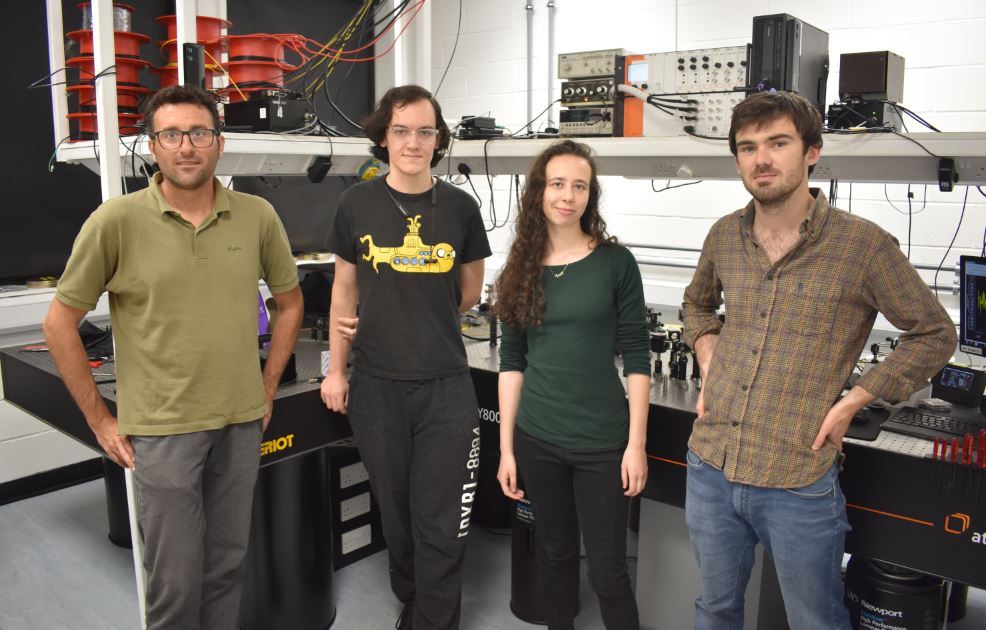Published:

Each year, communication hacking costs the global economy billions of pounds but scientists at Heriot-Watt University are looking to utilise the mysterious properties of quantum mechanics in an effort to beat the criminals.
Dr Cristian Bonato from the University's Institute of Photonics and Quantum Sciences is one of several researchers working in this field. He and his team recently secured two major financial awards to advance their research, by developing a quantum memory capable of storing data securely.
At present, information held on a computer memory card can be protected by masking it with a secret encryption key. However, this security measure can be hacked, revealing often valuable or sensitive data. A quantum memory, on the other hand, prevents a hacker from trying to read the secret key by exploiting the properties of quantum mechanics.
If successful, our research could hold significant benefits on the way we all use and transfer data electronically.
The quantum technology is based on a chip made of silicon carbide, a semiconductor material widely used in microelectronics and composed of a lattice of silicon and carbon atoms. A single silicon or carbon atom can behave as a tiny magnet, creating a quantum property known as "spin".
Dr Bonato and his team want to encode the encryption keys on the orientations of these tiny atomic magnets. If they are successful, it would mean someone trying to hack the memory would create what is known as 'quantum noise', effectively disrupting the magnets and immediately revealing the attempted security breach.
Dr Bonato explains: “In the last few years, our capabilities to control individual electrons and atomic nuclei has made exceptional progress. By using a semiconductor of wide use in electronics, we will be able to translate these scientific advances into real devices.
“If successful, our research could hold significant benefits on the way we all use and transfer data electronically. It will mean personal data will be more secure, giving everyone piece of mind when they are sharing or storing sensitive information.”
The team recently received more than £1.1 million from the UK national funding agency (EPSRC), and a £310,000 funding boost from the European Commission to develop a quantum memory that is fully compatible with telecommunication fiber networks. The EU funding enables the Heriot-Watt team to collaborate with world leading experts in semiconductor processing, quantum physics and fiber communications at several universities across Europe.
The funding will be used to set-up a state-of-the-art laboratory for quantum technology based at Heriot-Watt's Edinburgh campus. This will include a cryostat, capable of cooling samples down to almost absolute zero as well as a tuneable magnetic field, lasers and microwaves to control quantum states. In addition, three new researchers will be recruited to work on the project.